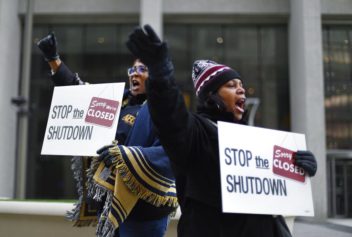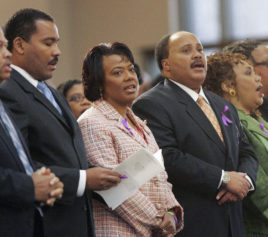Income inequality has become the subject of much debate in this country, in large part because of the Occupy Wall Street movement.
In his latest book, The Price of Inequality, Columbia Professor and Nobel laureate Joseph Stiglitz examines the causes of income inequality and offers some remedies. In between, he reaches some startling conclusions, including that America is “no longer the land of opportunity” and “the ‘American dream’ is a myth.”
While we all know stories of people who’ve moved up the social stratosphere, Stiglitz says the statistics tell a very different story. In the last 30 years the share of national income held by the top 1% of Americans has doubled; for to the top 0.1%, their share has tripled, he reports. Meanwhile, median incomes for American workers have stagnated.
Even more than income inequality, “America has the least equality of opportunity of any of the advanced industrial economies,” Stiglitz says. In short, the status you’re born into — whether rich or poor — is more likely to be the status of your adult life in America vs. any other advanced economy, including ‘Old Europe’.
For example, just 8% of students at America’s elite universities come from households in the bottom 50% of income, Stiglitz says, even as those universities are “needs blind” — meaning admission isn’t predicated on your ability to pay.
“There’s not much mobility up and down,” he says. “The chances of someone from the top [income bracket] who doesn’t do very well in school are better than someone from the bottom who does well in school.”
Because the children of those at the top of society tend to do better than those at the bottom — thanks, in part, to better education, health care and nutrition — the income inequality that’s slowly emerged over the past 30 years will only widen in the next 10 to 20 years.
If the root causes of income inequality go unaddressed, America will truly become a two-class society and look much more like a third world economy, Stiglitz warns. “People will live in gated communities with armed guards. It’s a ugly picture. There will be political, social and economic turmoil.” (Hence the book’s subtitle: ‘How Today’s Divided Society Endangers Our Future’)
The good news is Stiglitz believes this “nightmare we’re slowly marching toward” can be avoided, citing Brazil’s experience since the early 1990s as an example of a country that has reduced income inequality. Among other things, he recommends improving education and nutrition for those at the bottom of society, and eliminating “corporate welfare” and other policies which “create wealth but not economic growth.”
For example, he cites the provision in Medicare Part D which forbids the federal government from negotiating prices with the drug companies. Over 10 years, that rule will generate approximately $500 billion for the industry, he estimates, but no tangible benefit for taxpayers or the economy as a whole.
Importantly, Stiglitz believes inequality of wealth and opportunity are hurting the overall economy, by limiting competition, promoting cronyism and keeping those at the bottom from reaching their potential.
“What I want is a more dynamic economy and a fairer society,” he says, suggesting income inequality is ultimately detrimental to those at the top, too. “My point is we’ve created an economy that is not in accord with the principles of the free market.”


